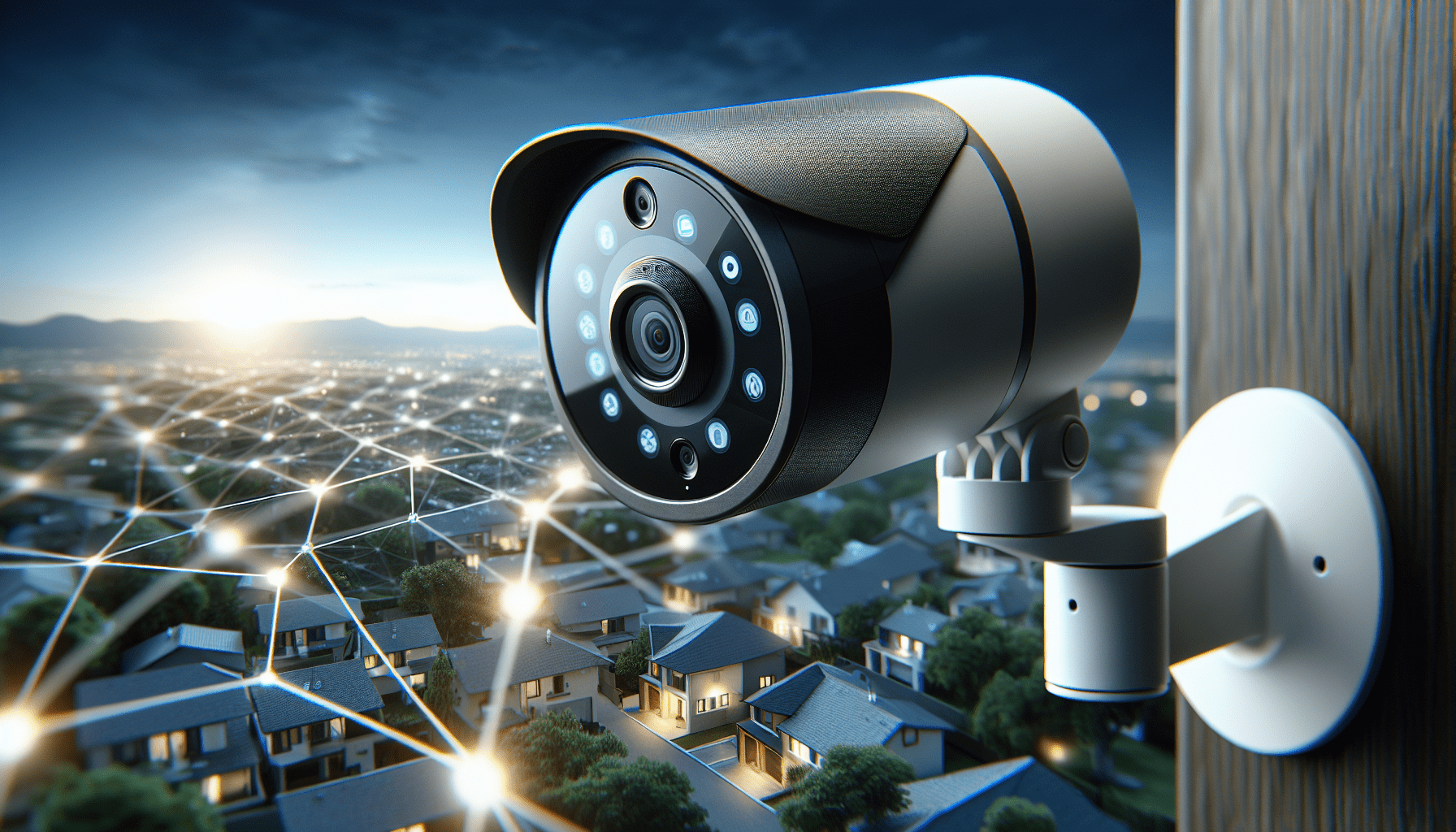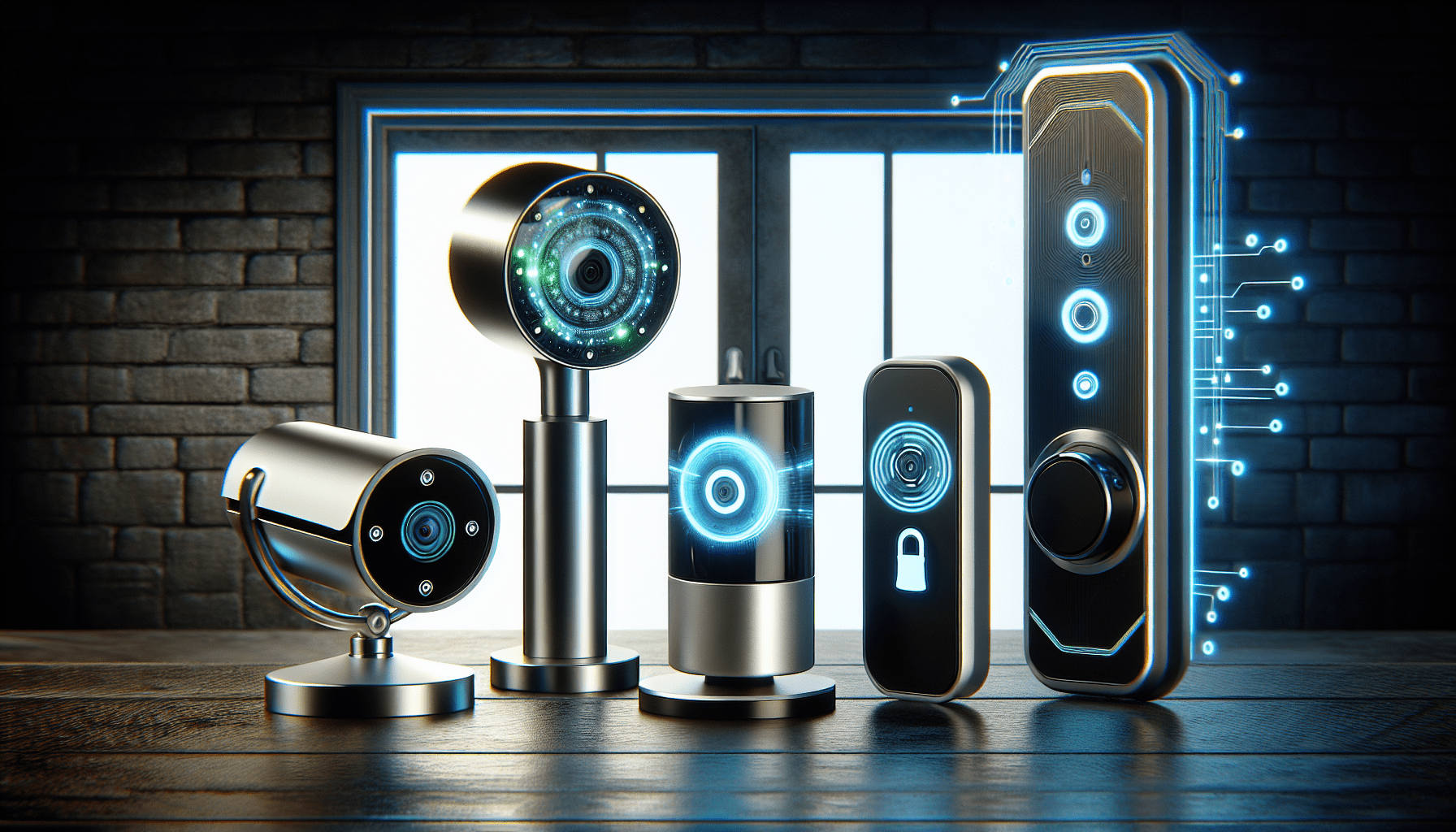Are you in the market for a smart home security system but find yourself overwhelmed with the multitude of options available? Worry not, because we’re here to guide you through the process of selecting the best system for your home. With the advancements in technology, protecting your home and loved ones has become easier and more convenient than ever before. By considering factors such as budget, features, and compatibility, you can make an informed decision and find the perfect smart home security system tailored to your needs. So let’s dive in and explore the world of smart home security systems together.
Consider Your Security Needs
Assessing the specific security needs of your home is the first step in choosing the best smart home security system. Every home is different, and understanding your unique requirements will help you make an informed decision. Take some time to think about factors such as the size of your home, the number of entry points, and any vulnerable areas that require extra protection. By identifying these needs, you can prioritize certain features and functions that are essential for your peace of mind.
Once you have assessed your security needs, the next step is to identify the areas you want to monitor. Determine which parts of your property require surveillance, such as your front door, back door, windows, driveway, or backyard. Different security systems offer various monitoring options, so being clear about the areas you want to watch will help you choose the right system that covers all your desired locations effectively.
After identifying the areas you want to monitor, you need to determine the level of protection you require. Some homeowners may only be looking for basic security features, such as door and window sensors, while others may need more advanced features like surveillance cameras, motion detectors, and smart locks. Understanding the level of protection you need will guide you in selecting the appropriate security system that meets your specific requirements.
Research Different Types of Security Systems
When it comes to smart home security systems, there are different types to consider. Wireless security systems are popular due to their ease of installation and flexibility. They rely on wireless communication between the devices, eliminating the need for extensive wiring. These systems are often DIY-friendly, making them a convenient choice for homeowners who prefer to set up their security system independently.
On the other hand, wired security systems involve physical wiring to connect the various components of your security system. While they may require professional installation and involve more upfront costs, wired systems are known for their reliability and durability. They are often preferred by those seeking a higher level of security and stability.
Lastly, hybrid security systems combine the best of both worlds. They offer the flexibility and convenience of wireless systems while still maintaining the reliability and stability of wired systems. This type of system allows you to choose which components are wired and which are wireless, providing you with customizable security options that suit your specific needs.
Evaluate the Features and Functions
When researching different smart home security systems, it’s crucial to evaluate the features and functions they offer. One important feature to check for is 24/7 professional monitoring. This means that a team of security professionals will be monitoring your home at all times and can quickly respond to any emergencies or alarms triggered by your security system.
Motion detection capabilities are another essential feature to consider. Look for systems that have advanced motion sensors, as they can detect any suspicious activity in and around your home. These sensors can send you real-time alerts, giving you peace of mind and the ability to take immediate action if necessary.
Remote access and control are increasingly important features of smart home security systems. With remote access, you can monitor and control your security system from anywhere using your smartphone or other internet-connected devices. This allows you to check on your home while away, arm or disarm your system remotely, and even view live video feeds from your security cameras.
Consider the Installation Process
When choosing a smart home security system, it’s essential to consider the installation process that suits your preferences and abilities. DIY installation is an option provided by many wireless systems, allowing you to set up the system yourself. These systems are designed to be user-friendly and typically come with step-by-step instructions or even online video tutorials to guide you through the process. If you are comfortable with technology and enjoy a hands-on approach, this may be the right choice for you.
However, if you prefer to leave the installation to the professionals, many security system providers offer professional installation options. This ensures that the system is set up correctly and optimally for your home’s layout and needs. While this may involve additional costs, professional installation can save you time and give you peace of mind that your security system is installed correctly and functioning as intended.
Assessing the complexity of the installation process is also essential. Some systems may require more technical know-how and involve drilling holes or connecting wires, while others may be more straightforward, with no drilling or wiring required. Consider your comfort level with installation tasks and choose a system that aligns with your abilities.
Check for Compatibility and Integration Options
Before making a final decision on a smart home security system, it is crucial to check for compatibility with existing devices. If you already have smart home devices in your home, such as smart locks, thermostats, or voice assistants, ensure that the security system you are considering can integrate with these devices seamlessly. This integration allows for a cohesive smart home ecosystem, where your various devices can work together harmoniously to enhance your overall home security and automation.
Similarly, review the integration options with popular smart home platforms. Systems that are compatible with platforms like Google Assistant, Amazon Alexa, or Apple HomeKit offer additional convenience and flexibility in managing your smart home. Compatibility with these platforms allows for voice control and synchronization with other smart home devices, creating a more seamless and interconnected experience.
In addition to compatibility with existing devices and smart home platforms, check if the security system offers third-party integration options. This can expand the functionality of your system by allowing it to work with other devices or services in the market. Third-party integration can enable innovative features and expand the possibilities for customization and automation within your smart home.
Assess the Costs Involved
Understanding the costs involved in purchasing and maintaining a smart home security system is essential for making an informed decision. Evaluate the upfront equipment costs of each system you are considering. This includes the cost of devices such as cameras, sensors, control panels, and any additional accessories you may require for complete coverage.
In addition to the equipment costs, consider the monthly monitoring fees associated with the security system. Some systems require a monthly subscription fee to cover the costs of professional monitoring services and access to advanced features. Compare the subscription plans of different systems and ensure they align with your budget and needs. It’s worth noting that while some systems may offer lower upfront costs, they may have higher monthly fees, and vice versa.
Calculating the long-term costs is also important. Take into account any additional expenses, such as maintenance and potential equipment upgrades over time. Consider the lifespan of the equipment and whether the system offers future-proofing capabilities to adapt to emerging technologies. A long-term perspective will help you choose a security system that not only fits your immediate budget but also remains cost-effective in the future.
Read Customer Reviews and Ratings
When making any significant purchase, it’s always helpful to hear from other customers who have firsthand experience with the product or service. Search for customer reviews online to gain insights into the performance and reliability of the smart home security systems you are considering. These reviews can provide valuable information about the ease of installation, system performance, customer support, and overall user satisfaction.
Checking ratings and feedback from trusted sources is also beneficial. Look for reputable websites or organizations that specialize in reviewing and rating smart home security systems. These sources often provide detailed evaluations and comparisons, helping you narrow down your options and choose the best system that suits your needs.
Consider the experiences of other users when evaluating customer reviews and ratings. Pay attention to any common issues or recurring praises mentioned by multiple customers. This can shed light on the strengths and weaknesses of each system and give you a more well-rounded understanding of what to expect.
Compare System Packages and Brands
When comparing smart home security systems, make sure to review the features included in different packages. Companies often offer various package options with different combinations of devices and services. Assess what each package offers and determine which features are essential and which ones you can do without. This way, you can choose a package that strikes the right balance between functionality and affordability for your home.
Research reputable smart home security system brands to ensure you are investing in a high-quality and reliable product. Look for brands that have established a strong reputation and are known for their commitment to security and customer satisfaction. Consider factors like the brand’s experience in the industry, the quality of their devices, and their track record in delivering innovative solutions.
At the same time, consider the reliability and reputation of each brand. Look for user feedback and reviews specific to the brand itself, not just the individual products. This will give you a sense of the overall customer experience and help you make an informed decision based on both the specific system and the brand behind it.
Seek Recommendations and Expert Advice
In addition to conducting your own research, seeking recommendations and expert advice can provide valuable insights and guidance. Ask friends, family, and neighbors who have already installed a smart home security system about their experiences. They can share firsthand information about the pros and cons of different systems and offer recommendations based on their own satisfaction and reliability.
Consulting with security professionals can provide you with expert guidance tailored to your specific security needs. These professionals can assess your home’s layout, vulnerabilities, and specific requirements to recommend the most suitable smart home security system. They often have in-depth knowledge of the latest technologies and can provide valuable insights to ensure you choose a system that meets your security goals.
Seek advice from smart home technology experts who specialize in the field of home automation and security. These experts have a deep understanding of the industry trends, emerging technologies, and the specific challenges faced by homeowners. They can provide unbiased advice and recommendations based on your home’s unique requirements, helping you make an educated decision.
Consider Customer Support and Warranty
When investing in a smart home security system, it’s important to consider the availability of customer support. Check if the security system provider offers prompt and reliable customer support channels, such as phone, email, or live chat. Good customer support ensures that any issues or concerns you may have with the system can be addressed in a timely and efficient manner.
Look for warranties and guarantees offered by the security system provider. A warranty provides assurance that the system is of high quality, and the manufacturer will cover any repairs or replacements within a specified period. Understand the terms and conditions of the warranty, including any limitations or exclusions, to ensure you’re protected in case of any unforeseen circumstances.
Assess the reputation of the customer support team by reading customer reviews and seeking feedback from current system users. A responsive and helpful customer support team can make a significant difference in your overall experience with the security system. Opt for a provider that values customer satisfaction and has a track record of providing exceptional support.
By considering your security needs, researching different types of security systems, evaluating features and functions, assessing the installation process, checking for compatibility and integration options, evaluating costs, reading customer reviews and ratings, comparing system packages and brands, seeking recommendations and expert advice, and considering customer support and warranty, you will be well-equipped to choose the best smart home security system for your home. Stay proactive in protecting your home and loved ones by investing in a reliable and comprehensive security solution that brings peace of mind and enhances your overall smart home experience.




